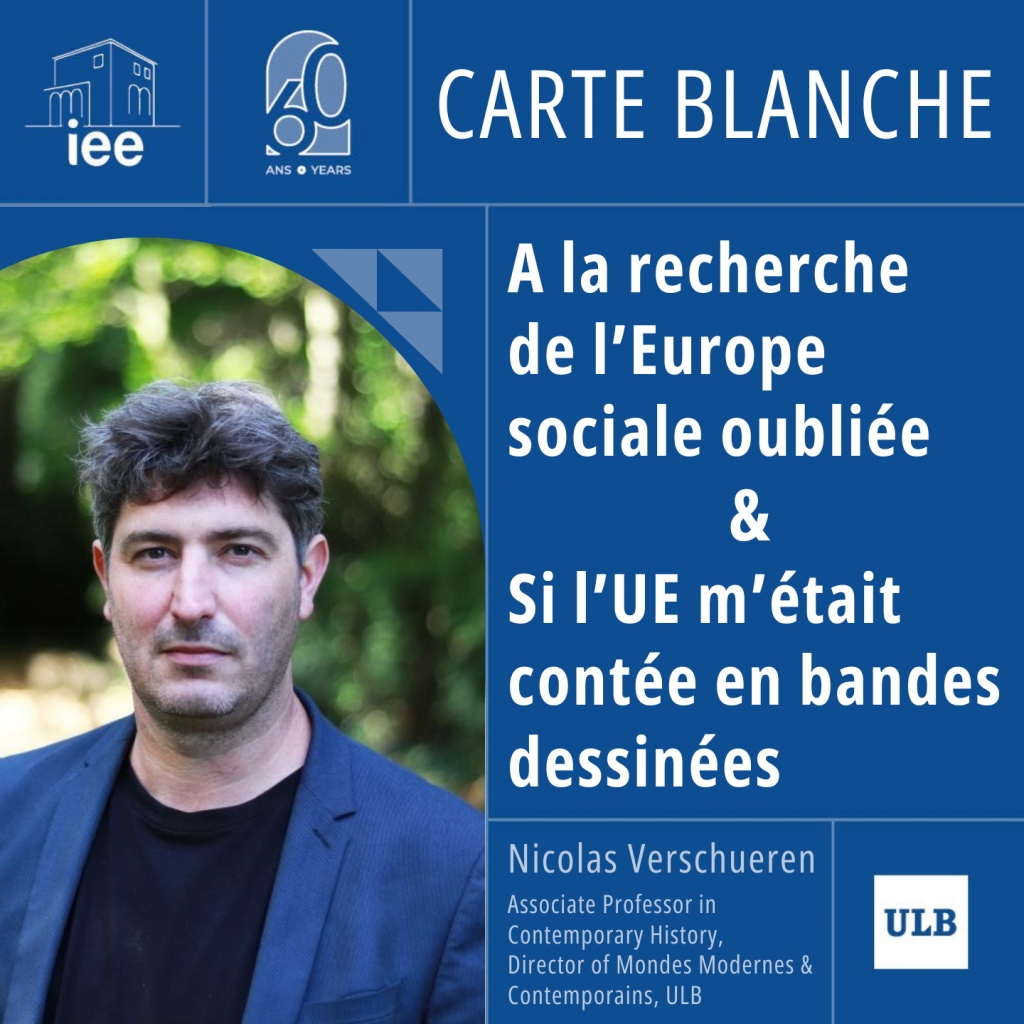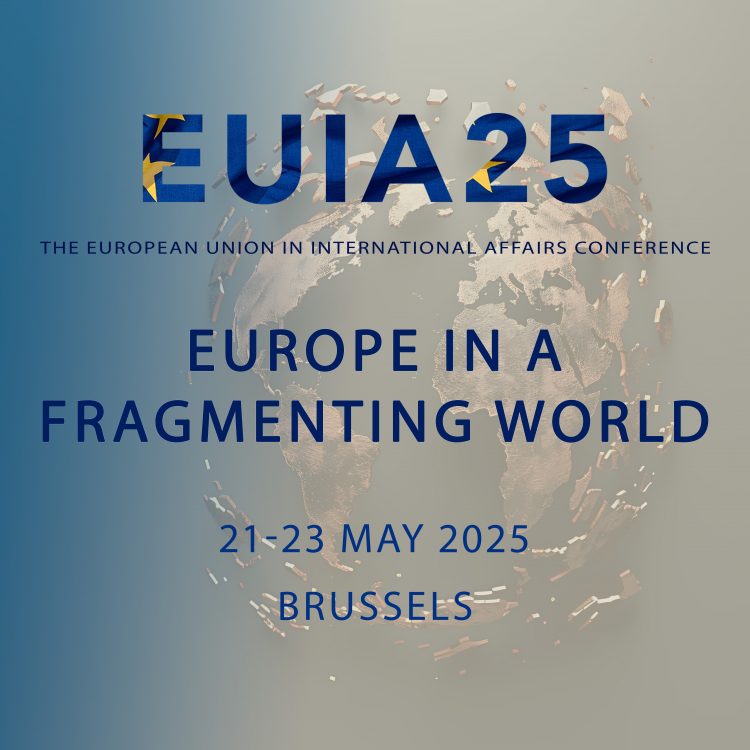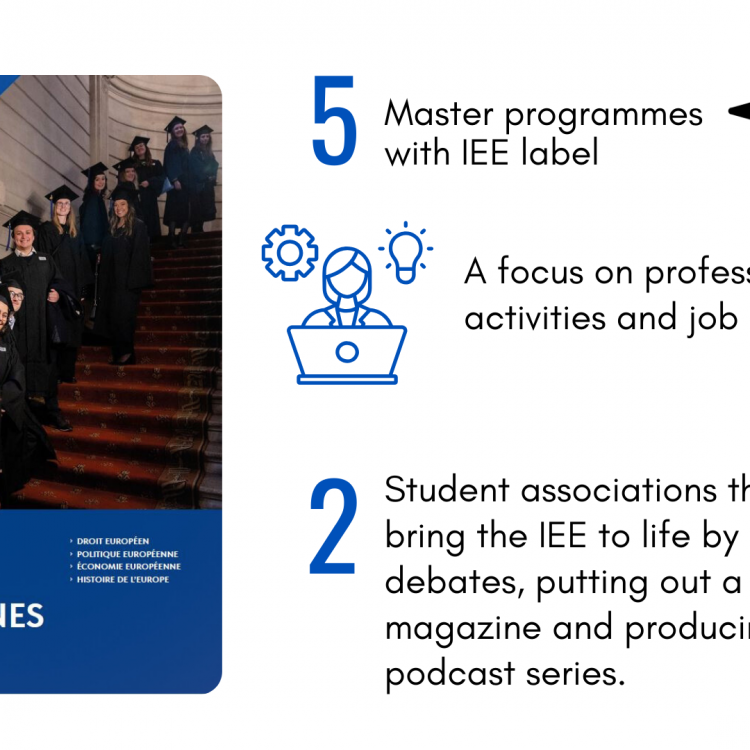The blueprint of a forgotten Social Europe
To open a new thematic chapter on Social Europe, we publish this week two articles by Nicolas Verschueren, Associate Professor in Contemporary History et Director of Centre Mondes Modernes & Contemporains of the ULB.
In his first article, professeur Verschueren argues that the question of Social Europe, a persistent blurry expression, has been on the agenda of European debates since the origins of European Integration. This carte blanche aims to highlight first social policy projects, the blueprint of a forgotten Social Europe. The history of the failures of this Social Europe reveals the nature of the first European institutions and their inabilities to be truly fertile ground for ambitious European social policies. Looking at the failure of a European status for mineworkers, we are able to observe the ambiguities of a European project which oscillates between solidarity and competition among European citizens and workers.
A la recherche de l’Europe sociale oubliée
The second article, takes a different perpective. According to professor Verschueren, the history of European Integration is still difficult to write and perhaps even more difficult to read. A history that is often perceived as too institutional, technical, and written by supporters of the European Integration project. This carte blanche aims to propose other narratives where the social history of Europeans is combined with the history of Europe, where founding mothers replace founding fathers, where daily struggles find echoes in Brussels, Luxembourg, Strasbourg or Frankfurt. In this case, the proposal is to look for a cartoonist who would be stimulated by the history of the European activism about equal pay between men and women and perhaps contribute to develop an original comic book or graphic novel. A true story where Jean Monnet, Paul-Henri Spaak and Walter Hallstein leave their place to a feminist activist, a worker and a flight attendant, their activisms could be then perceived as the action of founding mothers of a Europe, struggling to create a European Union as a place of solidarity and social progress. A narrative that would be both scientific and lyrical.
Si l’UE m’était contée en bandes dessinées
Rules of the game
The aim is to reflect on the past to obtain a better understanding of the present, while also projecting a vision for the future. The comparison across time and societies help us to guard against relativism. Our affiliated members (members of the academic, scientific and administrative bodies as well as scientific collaborators) are invited to mobilize their expertise and share research findings to provide insights for a wider audience.
The means are a set of short format articles (comparable to op-eds in a newspaper). Articles are written in a language accessible to the broader public, in either French or English, and present one of the debates that have shaped the history of European integration. For example, and without being exhaustive, contributions could cover the purpose of Europe, the borders of Europe, Europe as an actor of/in Culture, the desirability of social Europe, Europe and market forces, Europe and its relationship with third countries/regions, Europe and geopolitical power, the nature of European law, and the best ways of telling the story of Europe.
The structure suggested for contributions is the following: the stakes and issues defining the debate; the chronology and dynamics of its evolution; elements of continuity or mutation; challenges of present-day discussions and possible outlines of future debates. This framework is indicative and does not exclude alternative or more creative forms, such as rewriting of history or fiction.
The operation ’60 years in 6,000 characters’ is coordinated by the IEE management team (François Foret, President; Chloé Brière, Director; Emmi Kallio, Head of Administration and Communications) and an editorial committee (Paul Dermine, Professor of EU Law; Marta Matrakova, Research Logistician; Frederik Ponjaert, Scientific Coordinator).
The authors express freely their opinions that do not represent an official position of the IEE-ULB.




